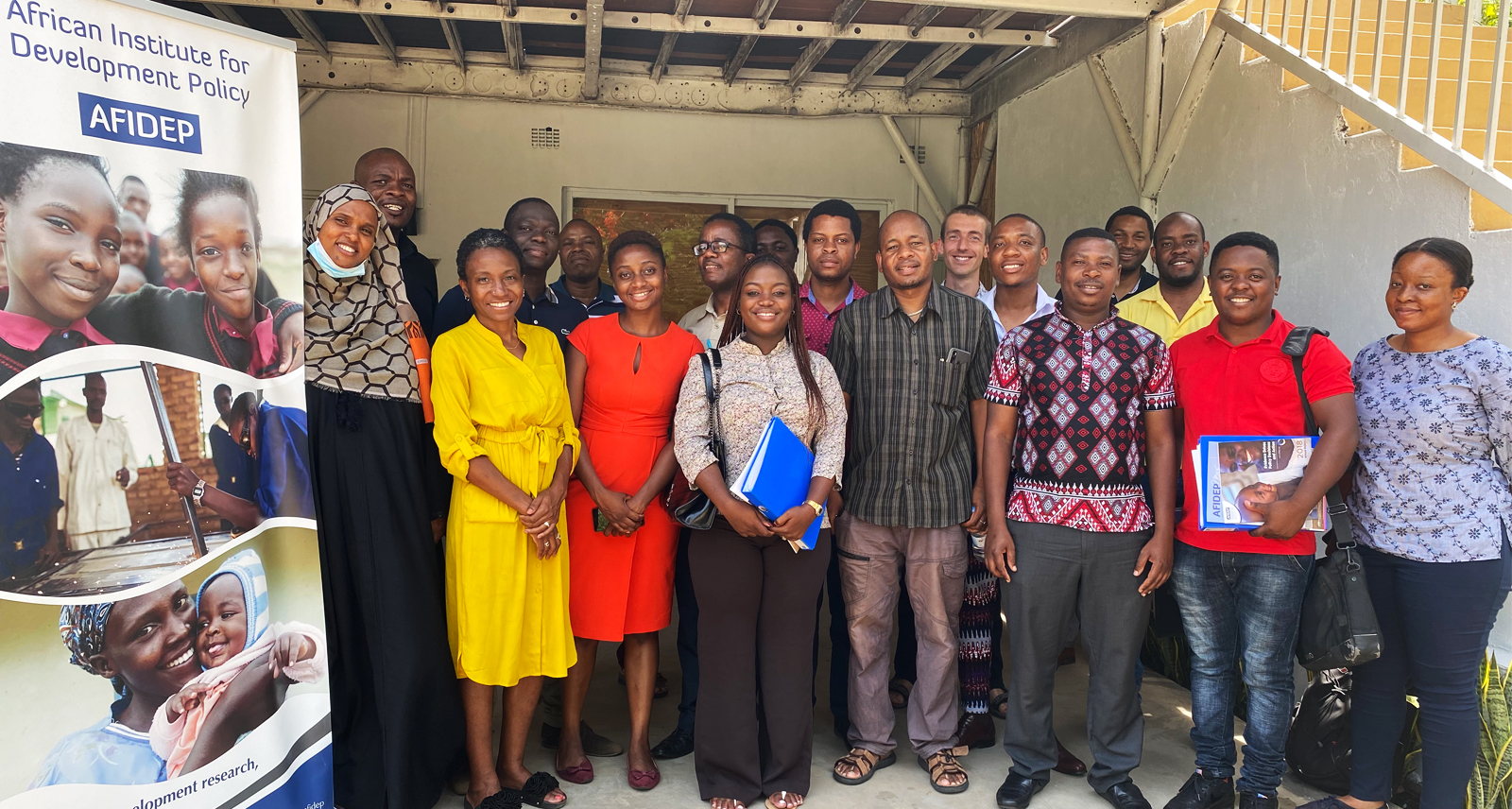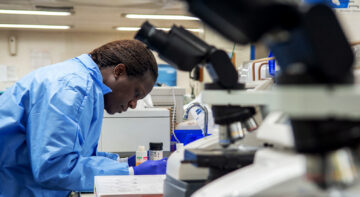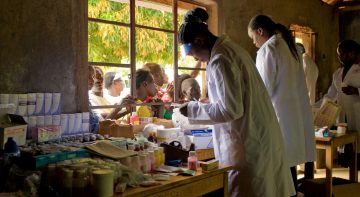Blogs

Evidence plays an integral part in the formulation of policy that is to yield the intended results by addressing a problem in society. As such, policymakers need to be equipped with the necessary skills to obtain and appraise evidence in order to make informed decisions. Based on this premise, AFIDEP, through the Drivers of Resistance in Uganda and Malawi (DRUM) and the African Research Collaboration on Sepsis (ARCS) teams, organised a four-day training workshop for policymakers working on issues of antimicrobial resistance (AMR) and sepsis. The training hosted participants from various departments of the Ministry of Health, Malawi Liverpool Wellcome Trust, WaterAid, Water and Environmental Sanitation Network and the Center of Medical Research Lambarene (Gabon).
Sepsis and AMR
Sepsis occurs when the body’s response to an infection injures its own tissues and organs, potentially leading to death or significant ill-health. These infections, which may be acquired in the community or in the hospital, have treatment that heavily depends on the use of antibiotics. When detected early, the fatality of sepsis is reduced massively. However, accurately diagnosing sepsis is a challenge among health care workers in low- and medium-income countries (LMICs); patients are at risk of being put on antibiotics that may not be effective in treating the condition. AMR occurs when microorganisms (such as bacteria, fungi, viruses and parasites) change when exposed to drugs that fight against them. These microorganisms cease to be susceptible to an antimicrobial (drug) that could previously be used to treat them. This makes ineffective use of antibiotics in treating sepsis one of the factors that lead to AMR.
Further, hospital-acquired infections are becoming a problem, especially in LMICs, due to poor sanitation and hygiene as health facilities are usually overcrowded and inadequately resourced. The high patient-medical officer ratio adds on to this problem by making it difficult for medical staff to adhere to basic infection prevention practices when they are having to treat many patients within a limited period of time. This situation promotes the development and spread of resistant microbials, making the management of infections (including sepsis) more difficult, leading to negative outcomes for patients. This places a huge burden on the health system.
The EIPM training
The training targeted policymakers working on sepsis and AMR, capitalising on the connection between the two problems. When participants were identified, a needs assessment was performed which informed the training agenda, and content was tailored to the group’s specific needs, with a majority expressing an interest to learn how to use evidence in the development of policy. The EIPM training was therefore important because it builds participants’ capacity on how to search for and appraise evidence to inform policy in their institutions and the nation. It results in the use of evidence in policymaking and ensures that policymakers make informed decisions and investments. It also ensures that civil society and researchers are able to productively engage with policymakers. During the four-day face-to-face training, participants covered the foundations of evidence-informed policymaking, how to access evidence, how to appraise evidence, how to synthesize evidence and how to apply the evidence in decision making. The training sessions included highly interactive presentations, question-and-answer sessions, demonstrations and hands-on practice on specific topics, achieving interactivity and practicality. For example, the training included interactive sessions with facilitators demonstrating how some key databases are used, including the Cochrane Library and PubMed.
To ensure greater effectiveness of the training, participants were provided with pre-reading materials as well as presentations in hard copy. A WhatsApp group was also created to aid with sharing information related to the training. The group also afforded participants the opportunity to interact with each other and the facilitators during and after the training.
Technical skills obtained following the training
To assess the practicality of the training, we gave pre-and post-training tests using Google Forms. The results showed that among the participants, the level of knowledge before training was 65%, and after the training, the level of knowledge increased to 79%. In addition to the pre-and post-survey tests, we also evaluated the overall quality of the training. In general, the participants rated the quality of the training as very good (55% of the participants) and excellent (45% of the participants). Overall understanding of technical aspects improved by the end of the training and the participants were interested in a follow-up mentorship to support in conducting their evidence synthesis. Participants also suggested potential areas that they wish to cover in more detail in future training sessions. Some of these areas include, how to drive policy development and implementation effectively in a hostile political environment and how to develop a policy brief.
At the end of the training, participants attested to the training being relevant to their work. Participants shared some of their thoughts on the training as captured below:
“Yes, they met my expectations. They were clear, facilitators were attentive to participants’ needs”.
Another said;
“It was interactive. I enjoyed the group discussions and learning from people with different experience. Friendly group”.
And one added that:
“I learned how to come up with informed policies which will be very helpful in my field. The other most important thing was that the training was practical, which helped in gathering more information. In addition, we were given the opportunity to add in our inputs”.
Watch participant feedback below.
What’s next?
The training will be followed by a formal mentoring programme which will run for 8 weeks starting mid-December 2020. Participants will be divided into four groups upon establishing their commitment, and delivery of these mentorship sessions will be virtual. The end products from this will be policy briefs. The mentorship activities will also serve as a good platform for policy engagement in both the ARCS and DRUM projects.
Participant testimonials:
ARCS is a Global Health Research Group awarded by the National Institute for Health Research (NIHR grant reference number 17/63/42) and led by the Liverpool School of Tropical Medicine (LSTM). This blog presents independent research funded by the NIHR. The views expressed are those of the author and not necessarily those of the NHS, the NIHR or the Department of Health and Social Care.
The Drivers of Resistance in Uganda and Malawi DRUM) consortium is a project awarded by the UK Research and Innovation (UKRI) and Department of Health and Social Care (DHSC) and is managed by Medical Research Council (MRC). The views expressed are those of the author(s) and not necessarily those of the UKRI, DHSC or MRC.
Related Posts





